Verbal communication between scuba divers on vacation and their Divemaster guide is vital to getting the most out of every dive. The pre-dive briefing is the best opportunity to discuss needs, and to ask & answer questions. Clear communication by all, and the DM having good people skills will enable everyone to enjoy each dive to the maximum.
Most scuba divers on vacation are led by a Divemaster guide. If you dive at home or with your dive club members it’s all very friendly and you know where you’re going & what you want. But scuba diving on vacation nearly always requires the services of a Divemaster to lead his or her fun-diving guests along the dive site. The DM’s job is not just to lead, but also to point out marine life, check everyone’s air from time to time, and plan or adjust the dive profile accordingly. In fact, the work begins before each dive, when a clear & thorough dive briefing should prepare everyone. The dive briefing is vital for everyone to listen to & understand, as well as make a few things clear. This includes listening & explaining by both the DM and the fun divers. On live aboard dive boats the dive briefings are often addressed ‘to all guests’ as a large group and then diving guests separate into groups in which they normally stay for the duration of the cruise. During the dive, communication is normally limited to hand signals. And after each dive everyone can discuss the good and maybe not-so-good aspects of what they just experienced together. This page is some neutral advice for Divemasters & fun divers alike. Even if you’re experienced and think you can’t learn anything new, take a moment to read and you may become even better at what you’re already good at.
![]()
For Divemaster guides
Many Divemaster guides are still very much in love with diving, and all they want to do is get in the water and lead their team. But the key to being a good DM is more about diving. You also need good people skills, especially before and after each dive. Why is it important to be a good DM for every dive? In addition to the safety & enjoyment of your group, you’re much more likely to receive a tip at the end!
Dive Briefings. Start in the Best Way
Spread your attention
When speaking to a group of people, it’s human nature to focus more on one or two individuals and pay less attention to others. How would you feel if you were being ignored, or if you were the one getting all the attention? It’s vital to make eye contact with everyone in the group, and try your best to share your eye contact as evenly as possible. That way, everyone in your group feels equally special and nobody feels like they’re unimportant.
Ask questions
Ask your divers what kinds of things are important to them. This isn’t just about whether they prefer nudibranchs to sharks! Some divers prefer to be at the back of a group while others prefer to be nearer to you. A lot of experienced divers don’t want to be continually asked about their remaining air. But an equal ratio of your potential divers will feel that if you don’t ask more often, you don’t care. Ask how often your divers normally like to report to you their remaining air. Find out all this information before the dive to maximise their enjoyment and to avoid any disappointment.
Reassure your divers
It’s also a lot easier to reassure someone verbally than underwater. There may be current, or something else that you need to make everyone aware of. Don’t be blasé about it, but do your best not to make anyone worry. Never say things like ‘strong current’ or refer to any marine life being dangerous. If there is likely to be current or things like jellyfish or nesting Triggerfish, calmly explain as best you can without causing anyone to worry unnecessarily.
During the dive
It’s their dives not yours
Try to avoid going where you want to go to see the things you want to see. If your dive briefing was up to standard, you will know more about your group’s needs. Try to give them what they want, rather than force them to follow your dive.
Remember which of your group want to or should be nearer to you, and who is better following along at the rear of the group. Remember to maintain good communication about air consumption but be sure not to hassle or ignore any of your group. You may be bored of or not care about a particular species, but if your divers told you that they like something, try your best to help find the creature, point it out, and share the happy moment with your guests.
After the dive
Be positive ASAP
At the surface, immediately after everyone can talk, make sure you’re happy and commenting on what a great dive it was. It’s important to do this even if the dive was nothing special. Ask everyone if they had fun, and make sure that you say something positive to every one of your group. This can be complimenting someone on their buoyancy, air consumption, or even their colourful fins! Make everyone feel special!
Follow up
When you’re back on the boat or at the dive centre, it’s very tempting to disappear and take a shower, grab your cell phone, or have a cigarette. While some of these may be needed and deserved, make sure that any of your group who log their dives have the opportunity to do so with you. It only takes a few minutes. This is also when you’re most likely to receive a ‘thank you’ from them, so don’t disappear, but equally you should never hang around looking uninterested.
You are the customer, but unless you’re paying for a private guide, you are not the only customer in your group. However, everyone’s safety and enjoyment is equally important, so make sure that you get what you want from your dive.
There are so many different types of fun diver, and only you know which type you are. Are you quiet, a bit nervous, confident, or happy to tag along whatever happens? How are you on air, and in a current? When did you last dive? Do you have your own gear? Do you have a GoPro or underwater camera? All of these things define what kind of diver you are, especially in the eyes of your Divemaster Guide (DM).
How you communicate with your DM before and after each dive is equally important to how you behave and communicate under water. Let the DM know what kind of things you expect, want or worry about.
Before Your Dive
Listen
Dive briefings can sometimes be a bit boring, especially if you have heard hundreds before. You may have also been to this particular dive site. But it’s vital to give your DM the courtesy of your attention for a few minutes before each dive. If you’re not paying attention, then others may copy you. And you never know, your DM may say something that you didn’t know or hadn’t heard before.
Ask Questions
If you ask your DM questions, you are not being a pain. It shows that you are interested in the dive. And you never know, another member of the group may want to know the answer but is a bit shy to ask. Questions about potential current, maximum depth and dive time are pertinent. A lot of DMs forget to mention these things, especially if they’re inexperienced or they’ve been in a particular job for too long.
Tell the DM what you want
It’s very helpful to your Divemaster if he or she knows what you like or dislike when diving. Little things like air consumption, where you are in the group, and what you want to see can make a big difference. If you don’t want to be continually asked about how much air you have left, tell your DM this. He or she will still ask once or twice, and a good DM will be able to judge just by watching you dive. But if you are a newer diver or you use a lot of air, make your DM aware of this. Another thing is where you are in the group. Some fun divers want to be near to their DM, maybe to be the first to be shown something or to be able to communicate more easily. Other divers are happier tagging along at the back of the group. If you like a particular type of marine life, let your DM know before the dive. He or she can look out for it, and show you the sign to indicate that they’ve found it. For example some people are really keen on Clown Anemonefish, Nudibranchs, Frogfish, or corals, while others are interested in other life forms. If you don’t tell your DM, how can he or she know?
During Your Dive
There’s not a great deal you can communicate to your Divemaster during the dive other than your remaining air, plus other feelings if you have a problem or particularly like what he or she is showing you.
Don’t panic if you’re worried about your air consumption and when you tell your DM he or she doesn’t appear too bothered. Don’t forget that a perfect dive profile sees you go to the deepest point as quickly as is safe & convenient, then you spend the rest of the dive shallowing up. So your air consumption rate will start off quicker and gradually become much slower as your dive continues.
After Your Dive
Thank your DM, even if things didn’t go exactly to plan. It’s up to you, your culture, and the local common practice if you pay a tip to your Divemaster. Many of them are paid quite a low salary until they’re able to become an instructor.
A good Divemaster will invite divers to sit down for a debrief and to enter information in logbooks. But it’s also ok to ask your DM when that will happen, which will either remind him/her to do it, or he/she will tell you the time and place.
So, whether you’re a DM or a diver, experienced or new, don’t forget that good communication will really improve everyone’s time under water. Divemasters can easily fall into a rut of monotony and forget to ask, say or point out small things. And fun divers may be too shy, a bit nervous, or even over confident. Once everyone starts releasing the air from BCDs the communication instantly becomes much more restricted, so before and after each dive make sure you’re doing everything to get the most out of the dive itself!
Jamie from https://www.similandivingtours.com/
Associated with https://www.notroublesjustbubbles.com/
Liveaboard picture is from Similan Diving::MV Nemo

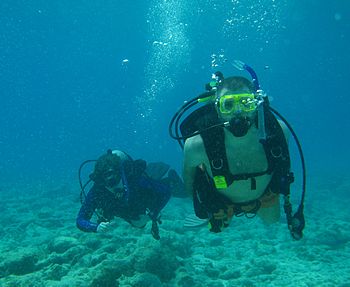
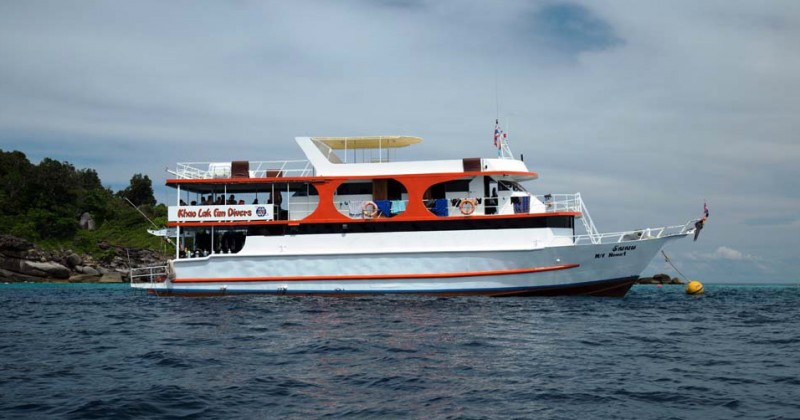


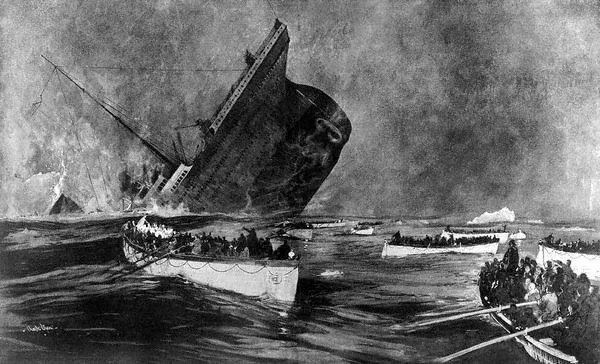
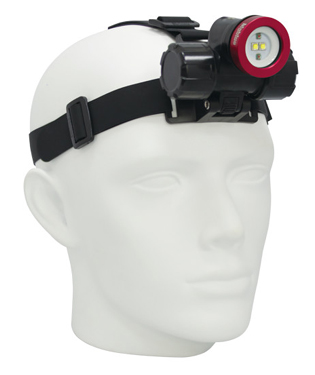
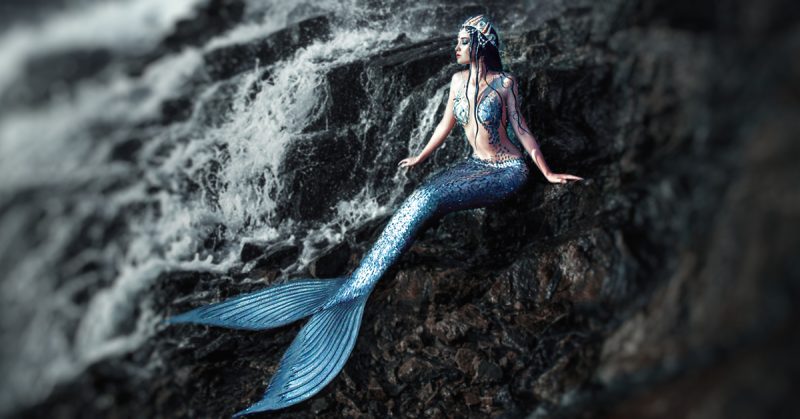
Leave A Comment